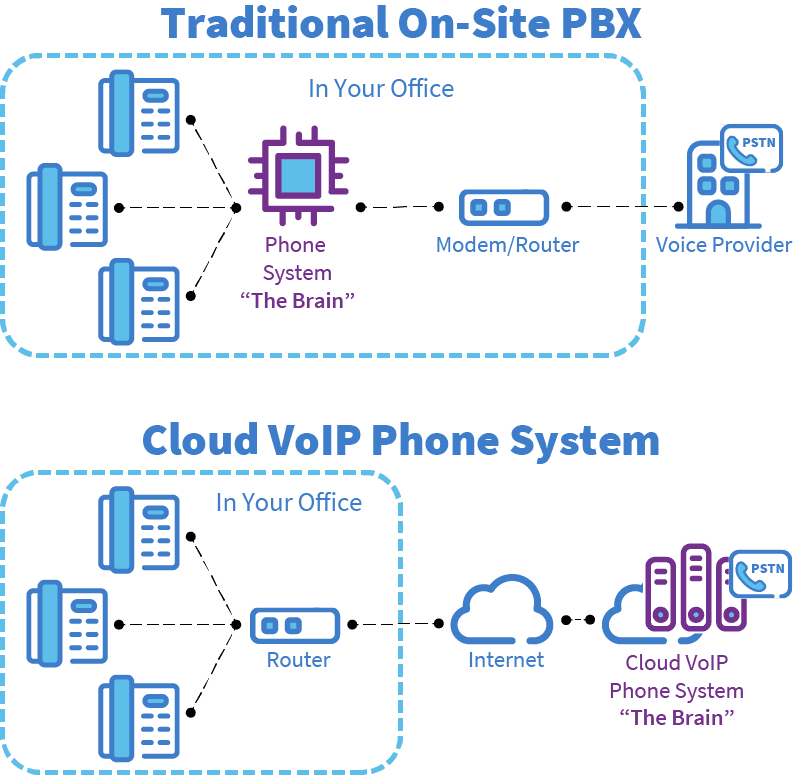Cloud Call Service
Welcome to a world where maximizing efficiency in communication has never been easier. Cloud call services have revolutionized the way businesses handle their phone systems, allowing for seamless integration, flexibility, and cost savings. By migrating to the cloud, companies can streamline their operations, increase productivity, and provide better service to their customers. Let’s explore how cloud call services can take your business to the next level.
What is Cloud Call Service?
Cloud Call Service is a technology that allows businesses to make and receive phone calls over the internet, rather than using traditional phone lines. This service is hosted in the cloud, meaning that all of the necessary infrastructure and equipment is maintained off-site by a third-party provider. This eliminates the need for businesses to invest in expensive hardware and software, as everything is accessed through a web portal or mobile app.
One of the main advantages of Cloud Call Service is its flexibility and scalability. Businesses can easily add or remove phone lines as needed, and can access the service from anywhere with an internet connection. This is especially useful for businesses with remote or mobile workers, as they can make and receive calls using the same phone number as their office colleagues.
Another key benefit of Cloud Call Service is its cost-effectiveness. Since all of the equipment and maintenance is handled by the service provider, businesses can save money on upfront costs and ongoing expenses. They also have the option to pay for only the features and services they actually use, rather than being locked into a pricey long-term contract.
Cloud Call Service also offers a range of advanced features that are not available with traditional phone systems. These include call routing, call recording, voicemail transcription, and integration with other business applications such as CRM software. Additionally, businesses can easily customize their phone system to suit their specific needs, such as setting up different call queues for sales and customer service departments.
In conclusion, Cloud Call Service is a modern and cost-effective solution for businesses looking to streamline their communication processes. By moving their phone system to the cloud, businesses can access a wide range of features and benefits that are not available with traditional phone systems. Whether you are a small startup or a large enterprise, Cloud Call Service can help to improve efficiency, flexibility, and customer satisfaction.
Benefits of Cloud Call Service
Cloud call service provides several benefits to businesses and organizations looking to streamline their communication processes. One of the main advantages of using a cloud-based phone system is cost savings. Traditional phone systems require expensive hardware and maintenance, but with a cloud call service, all you need is an internet connection and a compatible device. This means lower upfront costs and reduced monthly bills, making it an attractive option for small businesses and startups with limited budgets.
Another benefit of cloud call service is flexibility. Since the service is hosted in the cloud, employees can make and receive calls from anywhere with an internet connection. This is especially useful for businesses with remote or distributed teams, as it allows employees to stay connected and collaborate easily no matter where they are located. Additionally, cloud call service offers advanced features such as call forwarding, voicemail transcription, and automatic call logging, which can improve productivity and efficiency within the organization.
Moreover, cloud call service is scalable, allowing businesses to easily add or remove phone lines as needed without having to invest in additional hardware. This flexibility is particularly beneficial for businesses experiencing growth or fluctuating call volumes, as they can adjust their phone system to meet changing needs without incurring significant costs. Additionally, cloud call service typically offers seamless integration with other business tools and applications, such as customer relationship management (CRM) software, email, and chat platforms. This integration can help businesses streamline their workflows and improve communication and collaboration among team members.
Another advantage of cloud call service is reliability. Cloud-based phone systems are hosted in secure data centers with redundant systems and backups in place to ensure continued service even in the event of a power outage or other disruption. This means businesses can rely on their phone system to be available when they need it, without worrying about downtime or interruptions in communication. Additionally, cloud call service providers typically offer 24/7 technical support to assist with any issues that may arise, ensuring that businesses can quickly resolve any issues and get back to business as usual.
In conclusion, cloud call service offers a range of benefits for businesses looking to modernize their communication systems. From cost savings and flexibility to scalability and reliability, cloud call service provides a convenient and efficient solution for businesses of all sizes. By leveraging the features and capabilities of cloud-based phone systems, businesses can improve their communication processes, enhance productivity, and stay connected with customers and colleagues, no matter where they are located.
Features to Look for in a Cloud Call Service Provider
When choosing a cloud call service provider, there are several key features to look for to ensure you are getting the best service for your business needs. Here are some important features to consider:
- Reliability: One of the most important features to look for in a cloud call service provider is reliability. You want a provider that offers a high level of uptime and is able to handle a large volume of calls without experiencing downtime. Make sure to ask about the provider’s uptime guarantee and their backup protocols in case of any technical issues.
- Scalability: Another key feature to look for is scalability. Your business needs may change over time, so it is important to choose a provider that can easily scale their services to accommodate your growing needs. Look for a provider that offers flexible pricing plans and the ability to easily add or remove features as needed.
- Customization: A good cloud call service provider should offer a high level of customization to meet your specific needs. This includes the ability to customize IVR menus, call routing options, voicemail greetings, and more. Make sure to choose a provider that allows you to tailor their services to fit your business requirements.
- Integration with Other Systems: It is also important to choose a cloud call service provider that seamlessly integrates with your existing systems and software. This can help streamline your business processes and improve efficiency. Look for a provider that offers integrations with popular CRM systems, helpdesk software, and other tools you may be using.
- Quality of Service: When evaluating cloud call service providers, consider the quality of service they offer. This includes factors such as call clarity, reliability, and customer support. Look for a provider that uses high-quality voice connections and offers 24/7 customer support to quickly address any issues that may arise.
- Security: Since cloud call services handle sensitive personal and business information, it is crucial to choose a provider that prioritizes security. Look for a provider that offers encryption for calls and data, secure data storage, and compliance with industry regulations such as GDPR and HIPAA.
- Cost-Effective Pricing: Finally, consider the pricing of the cloud call service provider. Look for a provider that offers transparent pricing plans with no hidden fees. Compare the costs of different providers and choose one that offers a good balance of features and affordability for your business.
By considering these key features when choosing a cloud call service provider, you can ensure that you are getting a reliable, scalable, and customizable service that meets your business needs. Take the time to research and compare different providers to find the best fit for your specific requirements.
How to Choose the Right Cloud Call Service for Your Business
Cloud call services have become essential for businesses looking to streamline their communication processes. With a wide range of options available in the market, it can be overwhelming to choose the right one for your business. Here are some key factors to consider when selecting a cloud call service:
1. Assess Your Business Needs: Before you start comparing different cloud call service providers, take the time to assess your business needs. Consider the size of your team, the volume of calls you receive, and any specific features you require, such as call recording or automated call routing.
2. Evaluate Service Reliability: One of the most important factors to consider when choosing a cloud call service is the reliability of the provider. Look for a service that guarantees uptime and offers 24/7 customer support to quickly address any issues that may arise.
3. Consider Scalability: As your business grows, your communication needs will also evolve. Choose a cloud call service that can easily scale up or down based on your requirements. This will ensure that you don’t outgrow your communication system as your business expands.
4. Review Pricing Options: Pricing is an important consideration when selecting a cloud call service for your business. While cost shouldn’t be the only factor you consider, it’s important to find a service that fits within your budget. Some providers offer tiered pricing plans based on the number of users or minutes used, while others charge a flat rate. Look for a pricing structure that aligns with your usage patterns to ensure you’re getting the best value for your money.
5. Check Integration Capabilities: If your business uses other communication tools or software, such as CRM systems or helpdesk platforms, ensure that the cloud call service you choose can integrate seamlessly with these tools. This will help streamline your workflow and improve efficiency by allowing data to flow between different systems.
6. Read Customer Reviews: Before making a decision, take the time to read reviews from other businesses that have used the cloud call service you’re considering. Look for feedback on the service’s reliability, customer support, and ease of use to get a sense of what to expect as a customer.
7. Trial the Service: Many cloud call service providers offer free trials or demos of their services. Take advantage of these offers to test out the features and functionality of the service before committing to a purchase. This will give you a hands-on experience with the service and help you determine if it meets your business needs.
By considering these factors and taking the time to research and test different options, you can choose the right cloud call service for your business that will improve your communication processes and help you achieve your business goals.
Top Trends in Cloud Call Service Technology
Cloud call services have evolved rapidly in recent years, making communication easier and more efficient for businesses of all sizes. Let’s explore the top trends shaping the future of cloud call service technology.
1. Enhanced Integration with CRM Systems: One of the key trends in cloud call service technology is the seamless integration with Customer Relationship Management (CRM) systems. This integration allows businesses to track and analyze customer interactions in real-time, providing valuable insights to improve customer service and sales strategies.
2. Artificial Intelligence and Machine Learning: Another major trend in cloud call service technology is the integration of artificial intelligence (AI) and machine learning algorithms. These technologies enable call centers to automate routine tasks, such as call routing and data analysis, improving efficiency and reducing operational costs.
3. Omnichannel Communication: Cloud call service providers are embracing the trend of omnichannel communication, allowing businesses to interact with customers across multiple channels, including voice calls, emails, social media, and chat platforms. This ensures a seamless customer experience and enhances customer engagement.
4. Scalability and Flexibility: Cloud call service technology offers scalability and flexibility, allowing businesses to easily adjust their communications infrastructure based on their changing needs. Whether it’s adding new phone lines or expanding to new locations, cloud call services can scale up or down quickly without the need for expensive hardware upgrades.
5. Enhanced Security Features: With the increasing number of cyber threats and data breaches, security is a top priority for businesses using cloud call services. Advanced security features, such as encryption, multi-factor authentication, and secure connections, are becoming standard in cloud call service technology to ensure the protection of sensitive customer data.
In conclusion, the future of cloud call service technology is bright, with trends focusing on enhanced integration, artificial intelligence, omnichannel communication, scalability, and security features. By staying on top of these trends, businesses can leverage the power of cloud call services to improve customer communication and drive success in the digital age.






